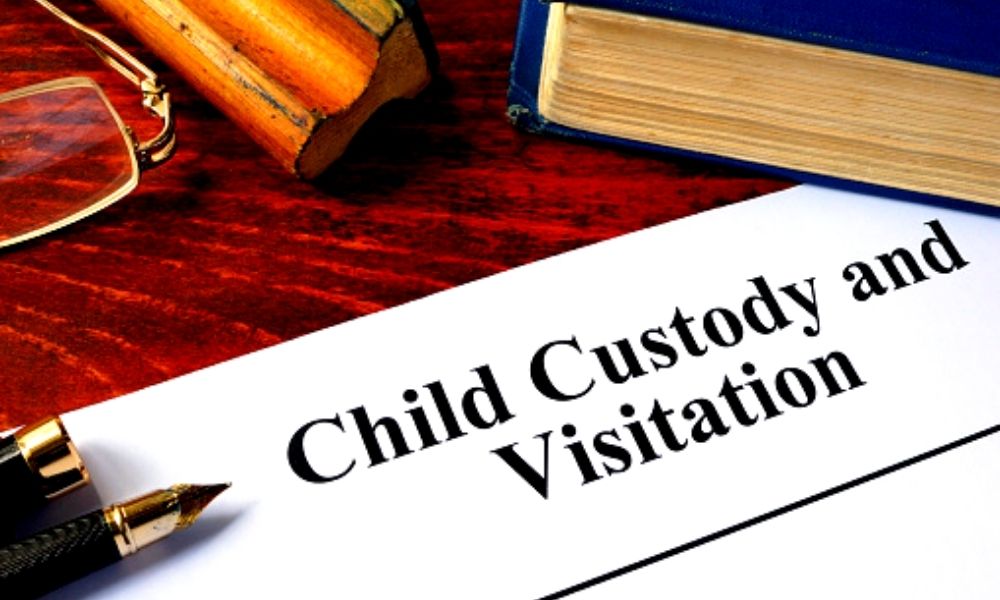Divorce is a difficult and stressful process for anyone, but especially for parents who have to deal with the impact of separation on their children. One of the most important and contentious issues that arise during a divorce is how to determine child custody and visitation rights. This blog post will explain what these terms mean, what types of child custody and visitation arrangements exist, and how a divorce lawyer and family court can decide who gets custody and visitation rights.
What Is Child Custody?
Child custody refers to the legal rights and responsibilities of parents regarding their children. There are two main types of child custody: physical custody and legal custody.
Physical custody determines where the child lives and who provides the day-to-day care for the child. Legal custody determines who has the authority to make major decisions for the child, such as education, health care, religion, and extracurricular activities.
Depending on the circumstances of the case, parents can have sole or joint physical or legal custody. Sole custody means that one parent has exclusive physical or legal custody of the child, while joint custody means that both parents share physical or legal custody of the child.
What Is Visitation?
Visitation, also known as parenting time, refers to the time that the noncustodial parent (the parent who does not have physical custody) spends with the child. Visitation can be supervised or unsupervised, depending on the safety and welfare of the child and the relationship between the parents.
Supervised visitation means that the noncustodial parent can only see the child in the presence of a third party, such as a relative, a friend, or a professional supervisor. This may be ordered by the court if there is a history or risk of domestic violence, substance abuse, mental illness, or child abuse or neglect.
Unsupervised visitation means that the noncustodial parent can see the child without any supervision or restrictions. This is usually granted by the court unless there is a compelling reason to deny it.
How Are Child Custody and Visitation Rights Determined?
Child custody and visitation rights are determined by either an agreement between the parents or a court order. Ideally, parents should try to reach an agreement on their own or with the help of a mediator, a lawyer, or a parenting coordinator. This can save time, money, and emotional stress for both parents and children.
However, if parents cannot agree on child custody and visitation rights, they will have to go to family court and let a judge decide for them. The judge will consider various factors to determine what is in the best interests of the child. Some of these factors include:
- The age, health, and needs of the child
- The bond and relationship between the child and each parent
- The ability and willingness of each parent to provide for the child’s physical, emotional, educational, and social needs
- The stability and continuity of the child’s home environment
- The preference of the child, if old enough to express it
- The history and potential of domestic violence, substance abuse, mental illness, or child abuse or neglect by either parent
- The cooperation and communication between the parents
- Any other relevant factor that affects the welfare of the child
The judge will try to create a custody and visitation arrangement that allows both parents to have frequent and meaningful contact with the child, unless there is a reason to limit or deny it. The judge will also try to avoid disrupting the child’s established routine and relationships as much as possible.
How Can You Get Help with Child Custody and Visitation Issues?
Child custody and visitation issues are complex and sensitive matters that require legal expertise and guidance. If you are going through a divorce or separation and need help with determining your child custody and visitation rights, you should consult with a Vasquez de Lara Law Group family law attorney who can advise you on your options and represent you in court if necessary.
A family law attorney from can help you:
- Understand your rights and obligations as a parent
- Negotiate an agreement with your ex-spouse or partner
- Draft a parenting plan that outlines your custody and visitation schedule
- File a petition for custody or visitation in court
- Gather evidence and witnesses to support your case
- Prepare for mediation or trial
- Enforce or modify an existing custody or visitation order
- Protect yourself and your child from domestic violence or abuse
Conclusion
Child custody and visitation rights are among the most important and challenging aspects of divorce for parents. They affect not only your relationship with your child but also your child’s well-being and development. Therefore, it is essential that you understand what these terms mean, what types of arrangements exist, and how they are determined by divorce lawyers and family courts.
If you need help with child custody and visitation issues, you should seek legal advice from a family law attorney such as Vasquez de Lara Law Group in Miami who can assist you with reaching an agreement or obtaining a court order that is in the best interests of your child.




